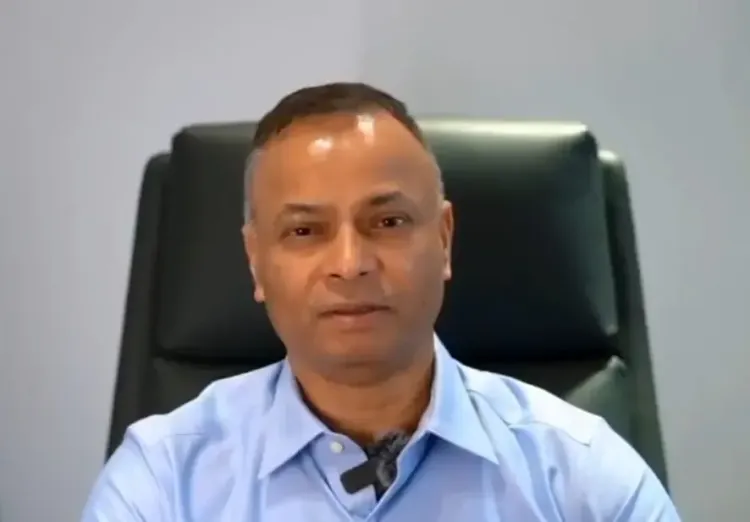Is Your Child's Late-Night Call a Warning Sign?

Synopsis
Key Takeaways
- Screen addiction can lead to significant mental health issues in children.
- Outdoor play is essential for healthy development.
- Encouraging real-world interactions helps combat screen dependency.
- Limiting screen time is necessary to ensure emotional well-being.
- Parents must take proactive steps to ensure a balanced childhood.
Chandigarh, Oct 19 (NationPress) The Director General of Police (DGP) of Haryana, O.P. Singh, has sent a serious warning to parents regarding the risks associated with excessive screen time for children, sparked by a late-night phone call he received from a young one by mistake.
Reflecting on the incident on X, Singh stated, "Received a late-night call – it turned out the caller's child had mistakenly dialed. Before disconnecting, I reminded him: phones encourage quick swipes, not genuine smiles."
Using this occurrence to shed light on the escalating concern of screen addiction among the youth, the DGP shared a video titled 'The Impact of Too Much Screen Time for Kids' by psychologist Dr. Rachael Sharman.
"Let children play with mud on their hands instead of holding glass in their palms," he emphasized, highlighting the significance of outdoor activities and authentic social interactions.
Singh referenced a 2021 study from the Journal of Paediatrics that associated over two hours of daily screen time with heightened risks of depression and anxiety in children, primarily due to disturbed sleep cycles and overstimulation of brain reward systems.
Expanding on these insights, the DGP remarked, "The primary mental health repercussions of screen time on kids include increased chances of depression and anxiety, particularly related to video gaming and nighttime screen usage, which disrupts sleep and activates brain reward pathways linked to ADHD behaviors."
He further noted that prolonged screen exposure can lead to "emotional and behavioral issues such as aggression, diminished self-esteem, social anxiety, and challenges in peer relationships, often creating a cycle where children rely on screens to cope, exacerbating their symptoms further."
Singh cautioned that excessive screen usage may result in "reduced social coping skills, impaired emotional regulation, and developmental delays in language, cognition, and social competencies," especially when it replaces real-world interactions and outdoor play.
"Restricting screen time and promoting real-life socialization is vital for healthy mental development," he stated, urging parents to actively foster a balanced upbringing for their children.









